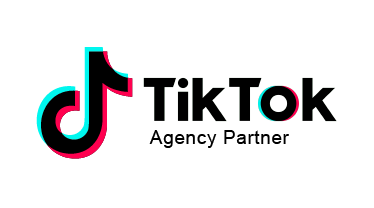6 Bad SEO Practice Every Local Business Should Avoid
Businesses can no longer afford to ignore the power of search engine optimization (SEO). It’s one of the most essential ingredients for creating a successful digital marketing strategy. By optimizing your website and content for search engines, you can attract more visitors who are looking for what you offer. And that means more leads, organic traffic, sales and more for your business.
Sounds easy? Well, it’s not. Having an SEO strategy requires you to be on your toes to learn and understand new updates. Search engines are regularly updating their algorithm, and you need to know what practices are good and what aren’t. If you don’t, your SEO performance and rankings could suffer drastically.
Search engines are also becoming smarter and are less susceptible to unethical SEO tactics. We want to rank higher and not have your content taken down. So, we’ve compiled a list of six bad SEO practices that your business should avoid.
Table of Contents
1. Posting Duplicate Content

Posting Duplicate Content Is One Of The Worst SEO Practices You Can Commit
Source: Freepik
Duplicating content can be very harmful to your SEO strategy. Not only is it frowned upon and can get you in trouble for plagiarism, but it can also impact your search engine ranking negatively. When you post the same content multiple times or plagiarise someone else’s content, search engines will notice and punish your web page—resulting in a lower ranking compared to those websites.
SEO is all about creating high-quality content that people will want to read and share. If you just copy and paste someone else’s work, you’re not going to get the results you want. You need to create original content that provides value to your target audience.
So be sure to create your own content that is original and relevant to your audience and avoid duplicating material from other websites.
2. Keyword Stuffing In Your Content

Stuffing Keywords Can Lead To Over-Optimized Content
Source: Freepik
Using the right keywords is a very important factor that helps determine how high a search engine ranks your web page. However, repeatedly using the same keywords or “keyword stuffing” is a very bad SEO practice and could get you penalised by a search engine.
For example, if your main keyword is best digital marketing agency Malaysia, don’t do this:
“Finding the best digital marketing agency Malaysia for your SEO needs can be tough. There are many factors to look out for when finding the best digital marketing agency Malaysia. You should take each of the pros and cons into consideration to find the best digital marketing agency Malaysia that best suit your needs.”
This paragraph will make your blog post look incredibly unnatural and looks like a cheap way to sell you something. A search engine looks for valuable content with relevant keywords to suggest to its users. So, overusing keywords, whether it’s natural or not, will do your page more harm than good.
Instead, use your keywords naturally in your title, meta description, opening and closing paragraphs, alt texts, and a couple more times in the body text.
3. Cloaking and Using Invisible Text
Have you ever seen those “life hacks” online that tell you to change your text colour to white to increase the word count? Well, some people use this technique to add relevant keywords without inserting them unnaturally. The invisible text may fool most humans, but this won’t trick search engine crawlers.
Search engines will still pick up on all the text on the page, no matter what colour it is, and use it to rank your website. So, you will still get penalised for keyword stuffing.
Cloaking is another example of a bad SEO practice that you should avoid. That is when you hide the real destination of a link and show users and search engine crawlers different versions of a page. These bad SEO practices may have fooled search engines before, but they’ve evolved over time and won’t fall for these tactics.
4. Posting AI-Generated Content

You Can Get Penalised For Posting AI-Generated Content
Writing content is getting easier than ever with the introduction of AI that can generate it for you. It may be a simple way to generate content, but search engines look down on it and consider it a bad SEO practice.
AI generates content by looking through the web for similar content, which means there’s a good chance it’ll be similar to someone else’s content. They rely on other content, so if the previous content is poorly written, the AI will also generate poor-quality content.
Google also released a new set of community guidelines to discourage AI-generated content by considering it spam if they detect it. Search engines are able to detect the quality of your blog post, so they can also pick up whether your content is valuable or not. Without writing your own content, there’s a very good chance that it will get penalised.
5. Keyword Link Stuffing
Not only is keyword stuffing looked down on, but overusing links in your article is considered one of the bad SEO practices that your business should avoid. Backlinking is a popular SEO strategy to help build your authority and credibility with a search engine. Hyperlinking other people’s content can also boost your SEO performance, but only if done correctly.
Search engines will consider your content spammy if there are too many links. It also depends on your word count. If you have a blog post with 300 words, linking ten articles will look like spam, and you can be penalised. You should only link external domains around once per post. The recommended link-to-text ratio is around one link for every 125 words used.
If you are going to hyperlink a website, make sure it’s reputable. Search engines don’t like it if you refer your users to a low-quality website. You should only link a website if it’s a credible source.
6. Writing Content To Please Crawlers and Not Humans

Create Content To Provide Value To Humans, Not Robots!
Source: Pixabay
Writing for SEO purposes is not about stuffing every relevant keyword possible to look valuable for search engine crawlers. Google’s algorithm focuses on providing the best content for its users, so you need to write content for their users, not them!
Search engines are smarter than ever and will pick up on unnatural content that is hard to read and not relevant to their users. Use your keywords appropriately and in the right places, and most importantly, remember to provide valuable content to searchers.

Do Better In Search Results By Practicing Good SEO Practices
Source: Pixabay
If you’re looking to avoid any potential penalties from Google, it’s important to be aware of these six bad SEO practices. Stay away from duplicate content, stuffing keywords, cloaking and invisible text, AI-generated content, keyword link stuffing, and writing for crawlers – and you’ll be on your way to better search engine rankings in no time.
















Join the discussion - 0 Comment